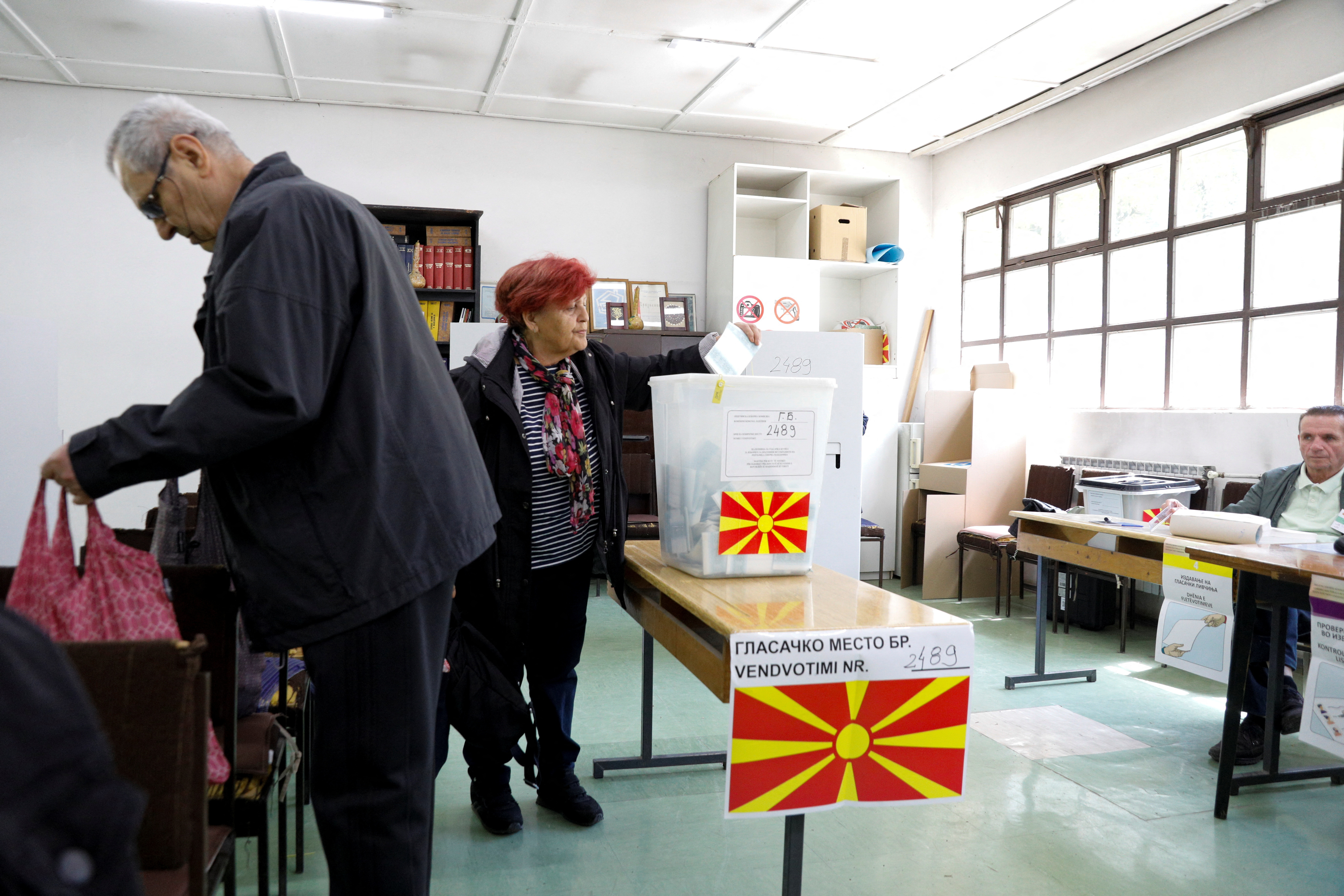North Macedonian opposition candidate leads presidential poll but runoff looms

SKOPJE (Reuters) -North Macedonian presidential candidate Gordana Siljanovska-Davkova held a big lead over incumbent Stevo Pendarovski with votes counted from almost 70% of polling stations on Wednesday, but both were well short of the 50% needed to win outright.
Siljanovska-Davkova of the rightist VMRO-DPMNE, had 38.71% of votes while Pendarovski, a Social Democrat, stood on 19.02%, the State Election Commission said. The numbers suggested there would be a runoff between the two leading candidates, on May 8.
The vote for the largely ceremonial presidency is widely seen as a litmus test for a parliamentary election next month in which VMRO-DPMNE is seeking to unseat the ruling pro-European and centre-left Social Democrats.
Turnout by 5:30 p.m. (1530 GMT) was 48.38%, according to the Election Commission app. Observers from local rights watchdogs reported minor irregularities such as activists advising those arriving at polling stations who to vote for.
VMRO-DPMNE has gained ground in recent years over public anger at the slow pace of the Balkan country’s accession to the European Union.
Bujar Osmani, a candidate for the ethnic Albanian DUI party, was running in third place on 14.89%.
“The party that wins in the first round will find it easier to mobilise voters in the second round and in the parliamentary vote,” political analyst Petar Arsovski said.
North Macedonia’s candidacy to join the EU was met with optimism in 2005. However, 19 years on, it has made little progress, in part because of opposition from EU members Greece and Bulgaria.
After voting in Skopje, Pendarovski said the conduct of the election could help to underline North Macedonia’s credentials for membership.
After casting her ballot, Siljanovska-Davkova said national identity and cultural issues should be excluded from EU membership talks.
“Otherwise, we (the Western Balkan states) will be exotic countries that will wait, wait, wait, and I’m afraid they [the EU] won’t welcome us,” she said.
A 2017 agreement to change the country’s name from Macedonia to North Macedonia ended its dispute with Greece, but Bulgaria lodged a veto in 2020 over history and language issues, which many North Macedonians say challenges their national identity.
In 2001, the Western NATO alliance pulled North Macedonia back from the brink of civil war during an ethnic Albanian insurgency, and the country was promised faster integration into both the EU and NATO. It joined NATO in 2020.
(Reporting by Fatos Bytyci, Aleksandar Vasovic, and Ivana Sekularac; Editing by Edward McAllister, Timothy Heritage, Kirsten Donovan and Kevin Liffey)